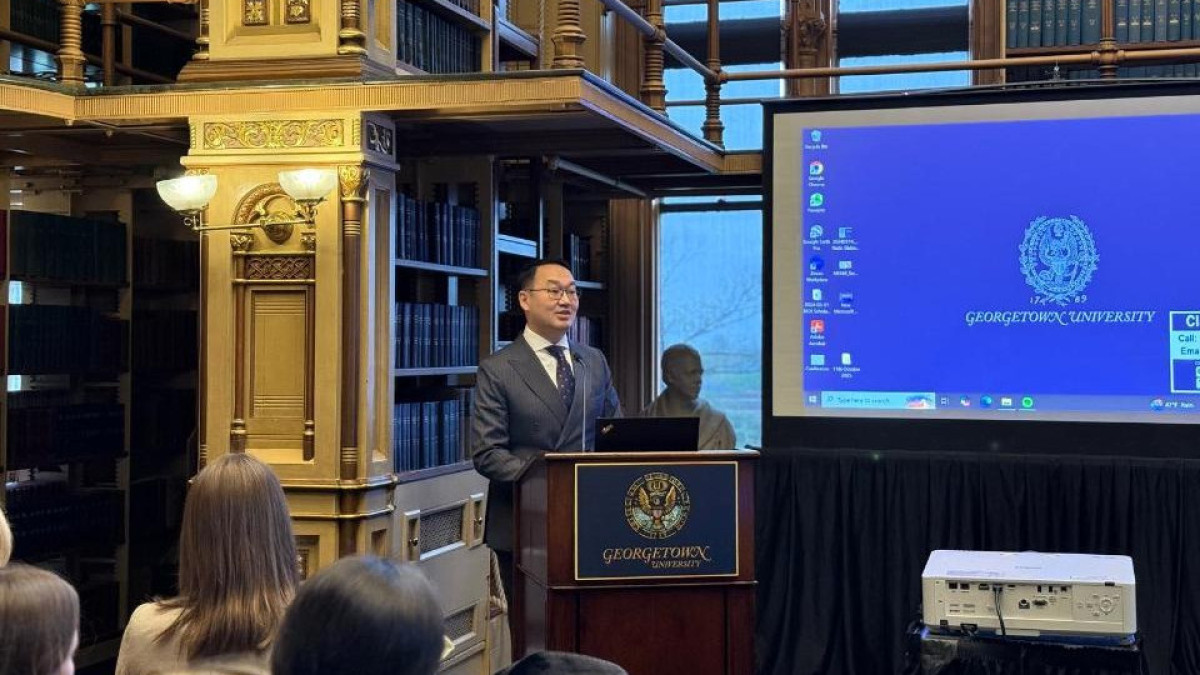
Central Asia’s energy future discussed in Washington, D.C.

EL.KZ Информационно-познавательный портал
Georgetown University hosted the conference “Crude Awakening”, organized by the Center for Eurasian, Russian, and East European Studies (CERES). The event brought together experts and policymakers to discuss regional dynamics and energy security issues in Central Asia,El.kz cites Kazakh FM.
Among the keynote speakers was Yerzhan Ashikbayev, Ambassador of the Republic of Kazakhstan to the United States. In his address, “The Energy Future and U.S.–Kazakhstan Relations,” the Ambassador highlighted the importance of strategic cooperation between Kazakhstan and the United States, stressing that the region’s energy transition requires a balanced approach that takes into account economic realities, sustainable development, and regional stability.
Ambassador Ashikbayev noted that Kazakhstan, endowed with significant reserves of uranium and critical minerals, is already contributing to global energy security and is committed to playing an active role in shaping new energy architectures. These include the peaceful development of nuclear energy and expanded partnerships in the rare earth metals sector.
“We aim not only to be a supplier of raw materials, but also a full-fledged participant in the global energy transition,” he stated.
The conference also featured leading regional experts, including Brianne Todd (NESA Center), Artemy Kalinovsky (Temple University), and Vadim Grishin (Georgetown University), who addressed key topics such as the reconfiguration of Central Asia’s energy systems and the prospects for strategic partnerships in critical resource development.
During the event, Georgetown University announced plans to establish a dedicated working group on Central Asia, aiming to strengthen academic and policy dialogue on regional affairs.
The conference was also attended by former U.S. Ambassadors to Central Asia, including Daniel Rosenblum (Kazakhstan), Stephen Mann, and Laura Kennedy (Turkmenistan), who shared their perspectives on future U.S. engagement in the region and the growing role of the private sector in the energy transition.
In conclusion, participants emphasized that a sustainable energy future for Central Asia hinges on strengthening international partnerships and pursuing a long-term strategic vision.
The outcomes of the conference are expected to inform new policy approaches and recommendations for the U.S. Administration in shaping its strategy toward Central Asia.

